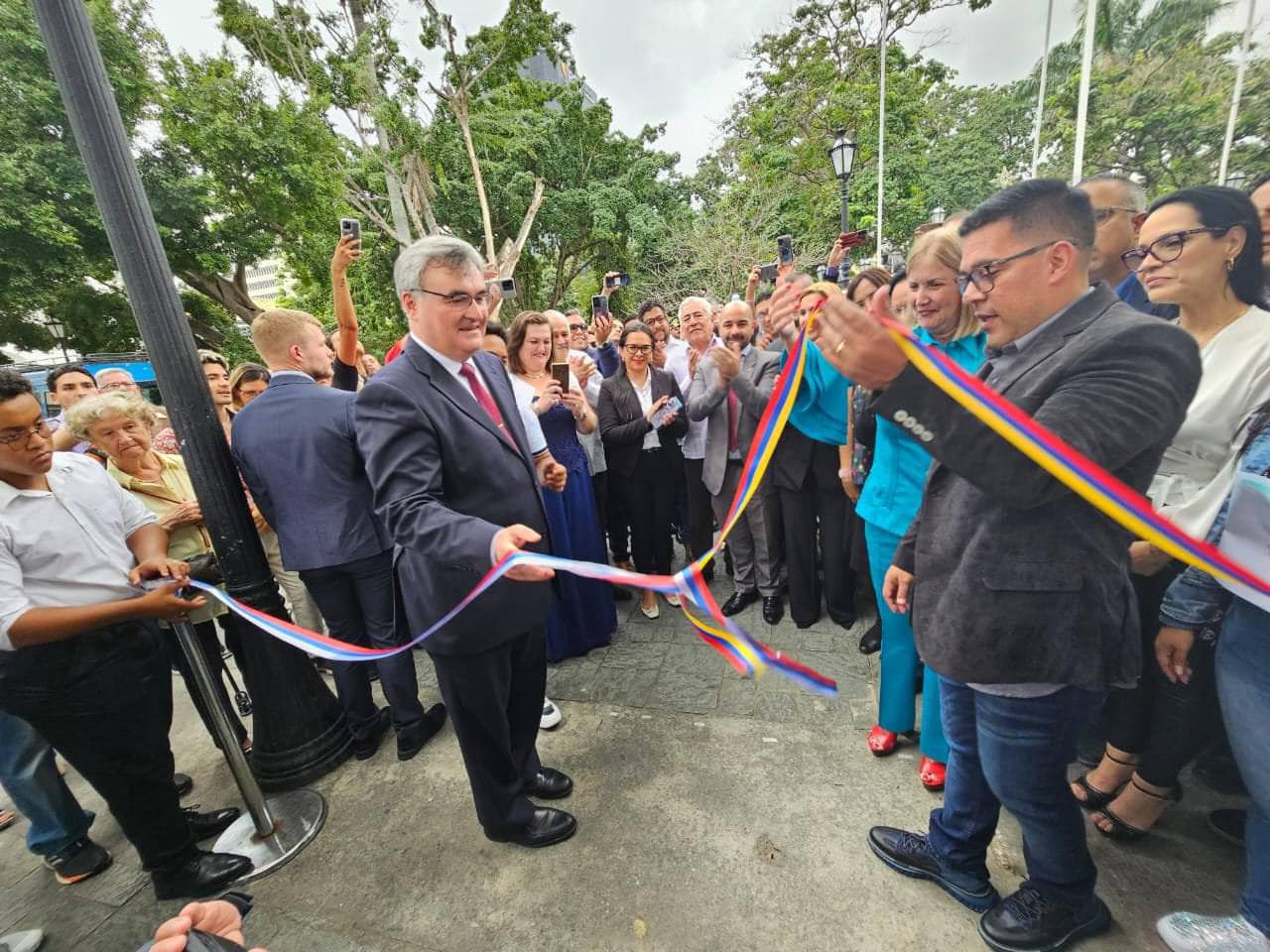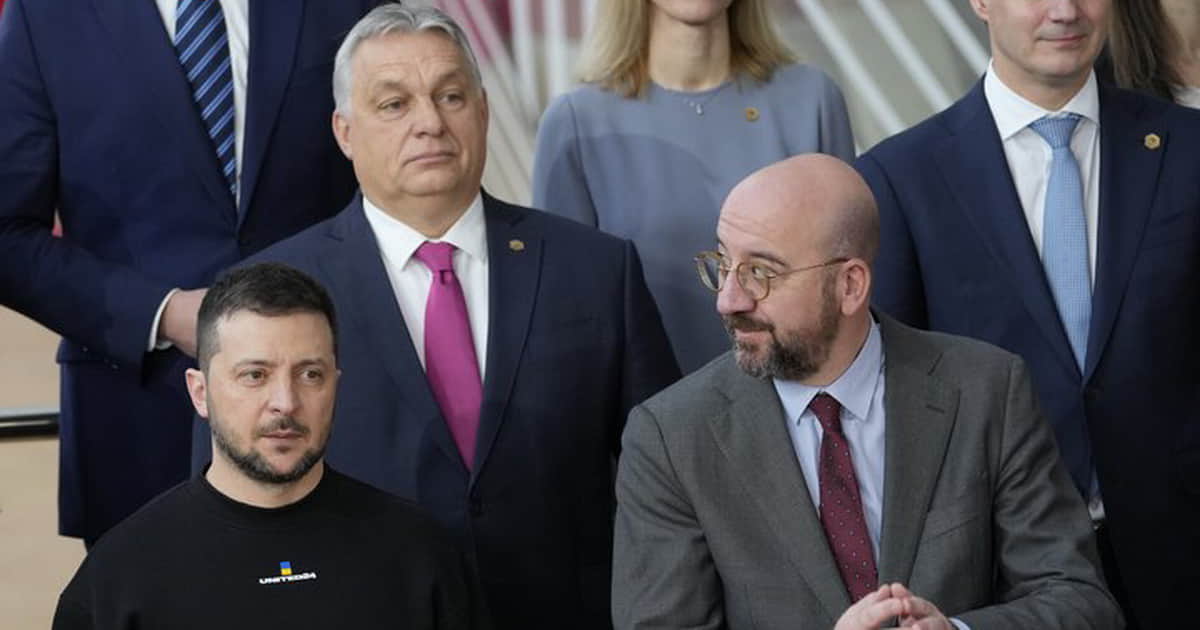How to break the Kremlin’s spell on the Latin American Left
There is an explanation to why the progressive, decolonial left is paradoxically justifying Russia's colonial aggression against Ukraine The post How to break the Kremlin’s spell on the Latin American Left appeared first on Euromaidan Press.

The international order designed and constructed since the end of the Second World War has been, without a doubt, imperfect and unjust. There is no better proof of this than the lack of a viable solution for many nations of the Middle East, Africa, Caucasus, Eastern, and Central Europe.
In addition to this lack of viable solutions for many nations, there are a series of failed nation-states, some of them with enormous difficulties in governance and social cohesion, not to mention the repression, discrimination, and even colonialism that some modern nation-states continue to implement to this day.
However imperfect and unjust that international order may be, it must be remembered that that same order contains sufficient legal, diplomatic, and institutional elements, with good faith, creativity, and political imagination, to legally and fairly resolve both the valid demands of those nations and the failures of nation-states.
It is very clear that this international order is not only being questioned (which is correct and necessary) but also violated and attacked by various international actors who, based on a false decolonial narrative that has deceived more than one in Europe and Latin America, seek to impose an order in which ethnic and religious violence, submission, invasion, and even genocide and ethnic cleansing are the ways to “resolve” global disputes and injustices.
Two of the actors, not the only ones but the most active, that undermine, violate, and seek to break the international order are the Russian Federation and the Islamic Republic of Iran.
Contemporary Russia shows all its colonialist and imperialist tendencies, not only in its genocidal nine-year aggression against Ukraine and its threats to the sovereignty and territorial integrity of the Baltic countries, Poland, and Finland but in its support for bloodthirsty dictators such as Bashar al-Assad, who continues to massacre his own citizens in Syria with the help of Moscow and Tehran.
Russia also operates in favor of dictatorships on the African continent, negotiates with terrorist groups such as Hamas and Hezbollah (which it calls “legitimate socio-political forces”), and has ruthlessly abandoned Armenians in the clutches of the Baku family dictatorship that has done with them what it wants with total impunity.
Under a false and cheesy decolonial narrative, which has sadly led Latin American politicians such as Lula, Evo Morales, Ortega, Maduro, and López Obrador to maintain embarrassing complicity with Russian crimes in Ukraine, Putin has gained allies in Latin America that should, given its terrible colonial history, oppose all genocidal and colonialist aggression such as Russia’s in Ukraine.
The other actor, the Islamic Republic of Iran, a misogynist, homophobic, fundamentalist regime with colonialist impulses, has established a strategy similar to that of Russia: to install a false anti-colonial narrative (based on a rabidly anti-US and anti-Israel discourse) that has attracted, and made accomplices, not only politicians such as those already mentioned but also some Latin American intellectuals and academics who pretend to see an example of decolonial resistance in an Islamist regime that It does not tolerate even internal dissent.
Suffice it to recall that the ayatollahs and their accomplices have shown no mercy to the social protests led by the brave Iranian women. The case of the Iranian Narges Mohammadi, who won the Nobel Peace Prize while languishing in a regime jail, is just one tragic example of this. Iran’s support for terrorist groups such as the Palestinian Hamas and the Lebanese Hezbollah, its colonialist view of neighboring countries, and its shady dealings with Latin American countries should be denounced by all of us who want an Iran and the Middle East free of violent fundamentalists.
Throughout Latin America, we can find political and academic voices that, identified with the political left, whitewash and justify the crimes that Russia commits in Ukraine and the threats that Moscow issues against the democratic world while applauding the repression and Islamist violence unleashed by Iran not only against its own citizens or against its enemies in the Middle East but on a global scale.
Seeking solidarity with Ukraine in the Latin American left
Russia’s new aggression against Ukraine has aroused much interest in four distinct but strongly interrelated “environments” or levels in Latin America:
- political
- academic
- mainstream media,
- social.
The ignorance about Ukraine and Ukrainians is reflected in all four environments/levels. Russian propaganda proved to be very effective in activating prejudices and defamations against Ukraine and Ukrainians.
However, two are key to all others: the political and the academic elites. It is their understanding of the conflict in Ukraine that conditions the terrible work of the media and their opinion-makers and, at the social level, the lack of empathy and solidarity with Ukrainians among the social sectors of the Latin American left.
At the political level, the Russian aggression was reactivated just when Latin America had a series of governments declared to be part of the political left, with some belonging to the global left movement. At the academic level, the most worrying reaction to the Russian invasion belongs to the academicians identified with the political left.
To this crisis, we must add the long-standing work and impact of Russian propaganda that managed to seduce many important voices in Latin America, taking advantage of the rabid anti-American sentiment of the Latin American political and academic elites.
Disturbingly, the international order is being not only questioned but attacked by several international actors who, based on a false decolonial narrative that has deceived more than one in the Latin America left, seek to impose an order in which ethnic and religious violence, submission, invasion and even genocide and ethnic cleansing will be the ways to “solve” global disputes and injustices.
Honestly speaking, the Latin American academia was not prepared to understand, let alone explain, Russian aggression against Ukraine.
In a small study I am doing at some universities in Chile, Colombia, and Mexico, in which I’m interviewing and chatting with students and academicians and reviewing the bibliography available in the libraries of those universities, I detected a lack of reliable information about the post-Soviet space in general and Ukraine in particular.
Without enough academic sources (books, articles, specialists) the Latin American academy identified with the progressive left and with emphasis on the processes of decolonization and post-colonization, found itself in the paradox of justifying the Russian colonialist aggression against Ukraine.
How can we address this crisis of the political imagination of the Latin American academic left?
The beginning of the answer lies in creating permanent academic links between Latin America and academia of the post-Soviet countries, including, of course, Ukraine. The Latin American decolonial vision must shake off the dominant Russocentrism and learn to look and understand other non-Russian nations with empathy and solidarity.
But empathy and solidarity depend on the renewal of Latin America’s academic and political imagination. The politicians will not take the first step, that first step should be given by the academy committed to a modern left thinking and free of the serious flaws inherited from the nostalgia of the USSR period and who remain dominant in our universities.
As proof that this academic collaboration is possible and fruitful were two open-access books that the Ukrainian professor Olena Palko and I published in 2023.
The first book in Spanish dedicated exclusively to Ukraine was “Descubriendo Ucrania. Su pueblo, su historia y su cultura” (Discovering Ukraine. Its people, its history, and its culture) where Ukrainian specialists from all over the world participated with articles, including three Ukrainians who reside in Mexico and Argentina. The second one, published in English in July was “Ukraine’s Many Faces.”
Another concrete proposal I would like to put forward in the panel is the creation of a series of “Eastern and Central Europe Chairs” in some Latin American universities inspired by the model of the Jean Monnet Chairs of the European Union. These are focused on the field of higher education, support teaching and research in the field of European Union studies worldwide, and also operate as diplomatic platforms in several countries, giving visibility to what the European Union stands for and intends to achieve.
I had the opportunity to coordinate one of the Jean Monnet Chairs in Mexico and it seems to me that it is an efficient, affordable, and effective way to activate the academic imagination of Latin American students and academics about this region of the world that still suffers the aggression of Russian colonialism.
If any of those who hear these words are interested in delving into and supporting this proposal for University Chairs on Eastern Europe in Latin America do not hesitate to contact me: manuelferezg (a) gmail.com
Together with other Latin American academics and students, I believe that we have a professional responsibility to stand up in the face of the onslaught of colonialism, imperialism, and intolerance of forces that seek to eliminate the freedom of democratic nations and peoples.
Featured image: Russian ambassador to Venezuela Sergey Melik-Bagdasarov opens a mural dedicated to the friendship of Venezuela and Russia in Caracas on 7 December 2022. Photo: Russkiy Dom on FB
Related:
- Ukraine’s fate will determine future of global democracy, says Nicaraguan freedom champion
- How Ukraine tries to woo the Global South
- Russia’s soft power empire pivots to Global South
- US: Russia funded anti-Ukrainian propaganda in Latin America
The post How to break the Kremlin’s spell on the Latin American Left appeared first on Euromaidan Press.



